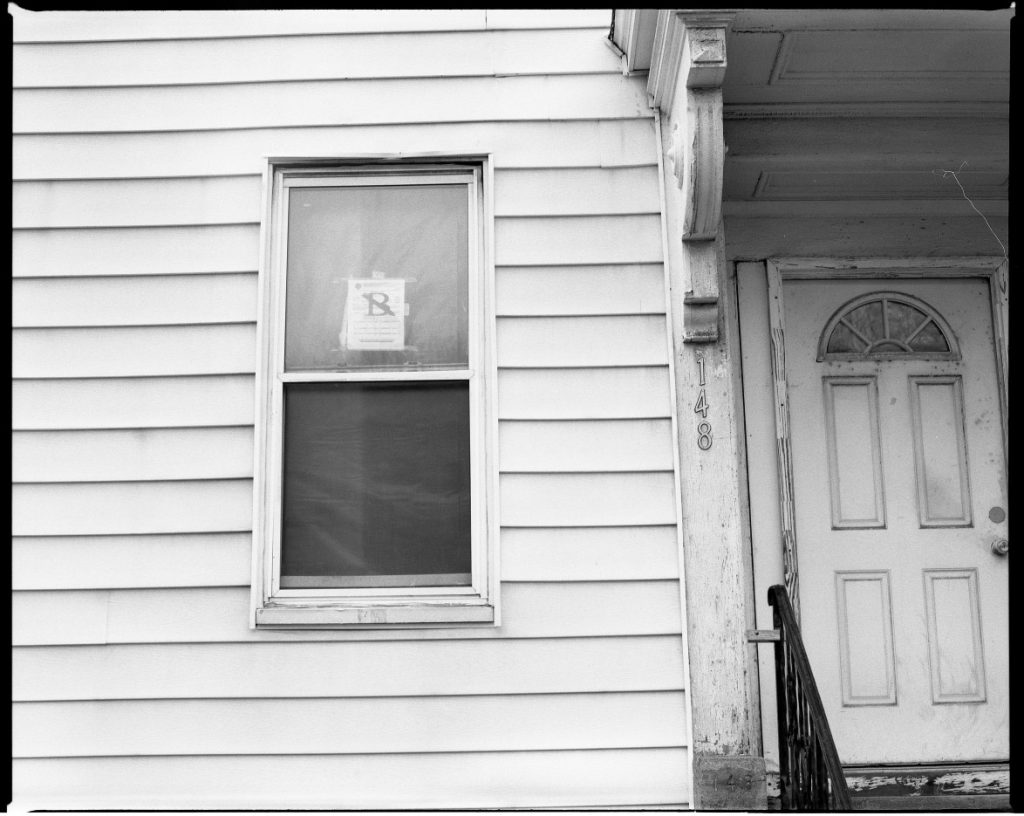Timing the property market can feel a bit like trying to time the weather.
Sometimes you get lucky. Other times, you get soaked.
As of January 2026, UK house prices are nudging upwards, mortgage rates are easing, and buyer demand is back — albeit more cautious than before.
So should you sell your home now, or wait until 2027?
Let’s break it down — with clear data, regional insight, and straight-talking advice.
What’s Happening in the Property Market Right Now?
The UK property market isn’t one story — it’s dozens of different ones, depending on where you’re selling and who your buyer is.
House Prices in Jan 2026: Up, but Uneven
According to the ONS House Price Index (Nov 2025 data):
- UK average: £271,000 — up 2.5% YoY
- England: £293,000 (+2.2%)
- Wales: £209,000 (+0.7%)
- Scotland: £193,000 (+4.5%)
- Northern Ireland: £193,000 (+7.1% YoY, Q3 2025)
Translation?
We’re in a modest-growth market — not a boom, not a bust.
In fact, in many regions, waiting another year won’t net you a massive windfall. But some areas (particularly Scotland and Northern Ireland) are showing stronger momentum.
So if your home’s in a high-demand micro-market — or fits what buyers want (think: energy-efficient, well-located, low-maintenance) — you may benefit by waiting.
But if you’re in a patchy part of the South, or own a “project” home that needs work? There’s less upside to holding out.
Buyer Activity: Returning, But Still Picky
HMRC stats from Nov 2025 show 100,350 residential transactions — the highest since March 2025.
That’s a clear sign: buyers are back. But they’re still negotiating hard and walking away from overpriced or tired homes.
What buyers are saying yes to right now:
- Homes that are well-presented and move-in ready
- Sensibly priced properties
- Energy-efficient homes (EPC C or better)
- Places with off-street parking, outdoor space, or fast broadband
Mortgage Rates: Easing, But Still a Factor
The Bank of England dropped rates to 3.75% in Dec 2025. That’s helped soften average mortgage rates:
- Two-year fixed: hovering in the high 4% range
- Five-year fixed: similar or slightly lower for low LTV borrowers
If you’re selling, this matters because affordability shapes demand.
Buyers can borrow more today than they could in 2023 or early 2024 — but lending is still cautious. That means overpriced homes (or ones needing costly upgrades) are often left sitting on the shelf.
So… Is 2026 a Good Time to Sell?
The answer isn’t one-size-fits-all. But if you want certainty — and your local market is holding firm — 2026 could absolutely be the right move.
Here’s who should seriously consider selling this year:
- You need to sell to meet a deadline (e.g., moving, separation, probate, financial pressure)
- You’re in a high-performing market (e.g., Scotland, NI, Midlands suburbs)
- Your home is turn-key ready and well-located
- You’re worried about more listings coming on in 2027, creating more competition
The 3 Big Forces That Decide Whether 2027 Will Actually Be “Better”
Most homeowners obsess over one thing:
“Will prices be higher next year?”
But the better question is:
Will buyers be able (and willing) to pay those higher prices?
Because house prices don’t rise in a vacuum. They rise when buyers have:
- bigger mortgage budgets
- confidence in their job/income
- a reason to move now (not “sometime later”)
Here are the three levers that matter most as we head through 2026 and into 2027.
1) Inflation: the hidden driver of mortgage rates
Inflation has eased a lot compared to the chaos of 2022–2023… but it’s not back to “easy mode”.
ONS put CPI inflation at 3.4% (December 2025).
Why you should care:
- If inflation stays sticky, the Bank of England is less likely to cut rates aggressively.
- If inflation cools through 2026, borrowing tends to get cheaper, which usually brings more buyers into the market.
What that means for your timing:
The case for waiting until 2027 is basically a bet that inflation keeps falling, and borrowing conditions improve further.
2) Interest rates: buyer budgets live and die by this number
The Bank of England cut Bank Rate to 3.75% in December 2025 (vote was tight, but the cut happened). Check that out here.
That’s important, because even a small move in rates can change affordability — especially for first-time buyers and anyone upsizing.
Here’s the practical bit:
- Lower rates = larger mortgage offers
- Larger mortgage offers = more demand
- More demand = sellers get their pick of buyers
But remember: rate cuts aren’t guaranteed. They depend on inflation, wages, and the wider economy.
Quick takeaway: if we see further cuts through 2026, 2027 is likely to feel busier than early 2026, simply because more people can pass affordability checks.
3) Jobs and wage growth: confidence matters as much as cash
ONS data shows unemployment at 5.1% (Sep–Nov 2025).
Wage growth has been easing too. The ONS labour market bulletin notes regular pay is growing in real terms , but it’s not the wage-boom environment some people imagine.
Why this matters for sellers:
- If people feel shaky about job security, they delay moving.
- If wage growth doesn’t keep up with housing costs, buyers stay price-sensitive (even if rates fall).
Translation: 2027 can be “better”… but it won’t look like the old days of buyers throwing offers around with no questions asked. And the future is never a certainty.
Budget & Tax Changes That Can Quietly Change Your Buyer Pool
Even if you’re not a landlord, taxes affect you because they affect who shows up to buy your property.
Stamp Duty: landlords and second-home buyers are paying more
For additional properties, the higher SDLT rates (from 1 April 2025) start at 5% on the first £125,000 and rise in bands from there.
Why that matters:
- It dampens investor demand, especially for smaller buy-to-let deals where the numbers are tight.
- If you’re selling a property that’s typically investor-friendly (tenanted, needs work, smaller flats), your pool of buyers may be smaller than it was a couple years ago i.e. less demand putting downward pressure on price.
Capital Gains Tax: if you’re a landlord, timing is also tax planning
For 2025-2026, the CGT annual exempt amount is £3,000.
And GOV.UK lists CGT rates of 18% and 24% for individuals from 6 April 2025 onwards.
If you’re selling a rental/second home, that CGT bill can be big enough to make “wait for a better price” less attractive — especially if:
- you’re also factoring in void periods, repairs, compliance costs, or a tenant leaving at the wrong moment
- your likely buyer is an owner-occupier who wants vacant possession anyway
The 2026–2027 Forecast: What the Mainstream View Actually Says
No forecast is gospel. But it’s still useful as a “base case”.
Savills (mainstream forecast)
Savills’ UK mainstream forecast has:
- 2026: +2.0%
- 2027: +4.0%
So yes, the industry view is broadly that 2027 is the stronger year.
But notice what those numbers imply:
If your home is worth £300,000, a 2% move is £6,000.
A 4% move is £12,000.
Then subtract:
- selling costs
- mortgage interest you pay while waiting
- any work you need to do to keep the property presentable
- the risk that your local area underperforms the national average
So the potential upside is real… but it’s not always life-changing. And it’s not guaranteed. Things can change between now and then.
Rightmove (asking prices)
Rightmove predicts new seller asking prices rising by 2% by the end of 2026, with better performance expected in more affordable regions than in London/southern England.
And we’re still seeing big regional splits in performance. London, for example, has been softer than many cheaper regions.
That’s why I always say this:
The UK market isn’t one market. It’s many. It’s your street, your buyer type, and your price bracket.
Your Situation Beats Any Forecast
Even if 2027 ends up being a stronger year, market timing only works if you can afford to wait.
So before you decide “sell now” or “hold on”, ask yourself:
Can you comfortably hold the property through 2026?
Not emotionally. Financially.
Because waiting has real costs:
- mortgage interest for another 12–18 months
- insurance, council tax, utilities (even if it’s empty)
- maintenance and compliance (especially if it’s rented)
- the risk that your buyer pool changes (or disappears)
If holding is easy and you’ve got flexibility, waiting can be sensible.
If holding feels tight, stressful, or risky, certainty usually wins.
Sell in 2026 If Any of These Apply
Here are the scenarios where selling this year tends to be the smarter play, even if 2027 looks “better on paper”.
1) You need certainty (deadline-driven sale)
This includes:
- probate timelines
- separation/divorce
- relocating for work
- a chain that needs you to move
- a fixed remortgage date and you’re worried about affordability
In these situations, the value of certainty often outweighs the value of waiting.
2) Your property is “prime buyer stock” right now
Certain property types are getting snapped up (even in cautious markets), including homes that are:
- in good nick (no obvious jobs)
- sensibly priced for the area
- decent EPC (C or above is a strong selling point)
- family-friendly layout, parking, garden
If your home ticks those boxes, you can sell well in 2026 because buyers want low-risk, turn-key purchases.
3) Your micro-market is performing today
National averages are useful. But buyers don’t buy “the UK”.
They buy:
- your postcode
- your school catchment
- your street
- your specific property type (flat vs terrace vs detached)
If your local market has momentum in early 2026, there’s a strong argument for taking advantage.
4) You think competition will increase later
Here’s a slightly counterintuitive point:
If mortgage rates keep easing, more sellers may list in 2027.
That can mean:
- more choice for buyers
- longer time on market
- harder negotiation
So if your property is likely to face heavier competition later (common with “standard” 2–3 bed family homes), selling in 2026 might just be a clean move while there’s less competition.
This is especially true if your property isn’t as appealing as others in the area.
Wait Until 2027 If These Apply
Waiting isn’t “wrong”. It’s just only right in the right circumstances.
1) You can hold the property comfortably
If you’re not stretched and you’re not up against a hard deadline, waiting gives you optionality.
That’s powerful.
Remember, things can change and 2027 isn’t guaranteed to follow predictions. So, you might even need to wait until 2028 or longer. So, if you’re not in a rush and you can afford to time the market, then by all means play the waiting game.
2) Your local market is soft in early 2026
Some parts of London and the South have been laggier.
If buyers in your area are thin on the ground, waiting for improved affordability and sentiment can help. But this depends on why your local market is softer than the national average, and whether that driver is likely to change or remain.
For example, it’s possible that the London market doesn’t explode back to pre-covid demand levels because hybrid working isn’t going anywhere soon.
3) You can use 2026 to make upgrades buyers actually pay for
This is the best version of “waiting”.
Not waiting passively, but instead waiting productively.
The upgrades that tend to pay back:
- fixing obvious defects (damp, leaks, tired electrics)
- improving presentation (paint, flooring, lighting)
- improving energy efficiency where it’s realistic (loft insulation, draught-proofing, heating controls)
What doesn’t usually pay back:
- high-end kitchens/bathrooms purely for resale
- extensions that don’t fit the street price ceiling
- anything that turns into a six-month building project
Your aim is to remove reasons for buyers to negotiate you down.
A Simple Decision Framework
If you only take one thing from this article, make it this:
The “Sell Now vs Wait” scorecard
Sell in 2026 if you answer “yes” to 2 or more:
- Do you need a guaranteed timeline?
- Would waiting increase financial stress?
- Would you struggle if you had to accept a lower offer later?
- Is your home already in great saleable condition?
- Is your local market moving above the national average?
Wait until 2027 if you answer “yes” to 2 or more:
- Can you hold the property comfortably for 12–24 months?
- Is your area currently sluggish (few viewings, slow sales)?
- Will rate cuts meaningfully increase your buyer pool?
- Can you make sensible improvements this year that strengthen your position?
How to Sell Super Quick in 2026 (When You Can’t Wait)
Sometimes you don’t need “top price”. You need speed. Certainty. A clean exit. In that situation, you’ve got three realistic routes:
Option 1: Price aggressively with an estate agent
Fastest “normal” route.
Works best when:
- the home is mortgageable and presentable
- you’re willing to price slightly under competing listings
- you can handle a chain and buyer risk
Option 2: Auction
Can work well for:
- unmortgageable properties
- major refurb projects
- unusual builds or short leases
But auctions come with uncertainty (and fees), and you’re still exposed to buyer fallout.
Option 3: A guaranteed cash buyer (fast sale)
This is where we come in.
At Property Rescue, we buy houses directly for cash, which means:
- offer in 24 hours
- chain-free sale
- no estate agent fees
- legal fees covered
- completion can be in days (case-dependent), sometimes as little as 48 hours in urgent cases
The Bottom Line
As of January 2026, the market is stable and moving, but buyers are still price-sensitive.
The case for waiting until 2027 is mainly:
- forecasts expect stronger growth in 2027 than 2026
- affordability may improve further if rates ease again
But if you need certainty, selling in 2026 can absolutely be the right call.
And if you need a quick, guaranteed sale (without the stress of a chain), Property Rescue can give you a free, no-obligation cash offer .






